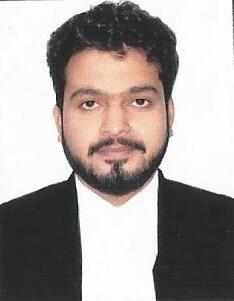In a major development the vacation bench of Justices AS Oka and Rajesh Bindal of the Supreme Court, on June 25th, has taken exception to the practice of suppressing material facts by the lawyers in Special Leave Petitions. A cost of Rs.25,000 has been imposed by the Supreme Court on the petitioners, as the COurt noticed that such 'harsh' measures were necessary.
Facts of the Case-
- A petition was filed by the All India EPF Staff Federation against an interim order of Delhi High Court passed on 20th March. The main concern for filing the petition was that if interim relief is not passed, the case would be adjourned till september.
- It was observed by the Bench that the petitioner wilfully suppressed the fact about the order of May 3, where it was found that the petitioner’s counsel failed to press for an application for an early hearing before the High Court, after which a later date of 5th september for hearing was given.
- During the hearing, when Bench indicated that costs shall be imposed for suppressing the facts, the counsel for the petitioner apologised while urging the Bench to not be so ‘harsh’.
- Justice Oka stressed that a 'harsh' approach was important in order to deal with the increasing trend where orders of the Court and other material facts are suppressed by the counsels. The Bench pointed out that such trend results in inconvenience to the Judges who would have to search through the websites of the High Courts in order to get factual clarity.
- While the Counsel insisted that the matter could be heard on merits, the Bench further expressed its displeasure as the counsel continued to pursue the case despite the Court pointing out the factual suppression on part of the counsel.
- While dismissing the SLP, the Apex Court observed that the present SLP was filed to challenge the decision of the High Court passed on 20th March 2024, while the counsel suppressed the fact that a petition was filed in the High Court on 3rd May for an early hearing, which was denied by the High Court and a later date was given for September. The Apex Court also observed that in the present SLP filed in June 2024, the fact related to the filling of application 26033 of 2024 on 3rd May as well as its order were also suppressed.
- The present SLP was thus dismissed on account of suppression of material facts, while the petitioner was directed to pay a cost of Rs.25000.
What is Suppression of Facts in the Court ?
- Suppression of any fact, material or not, could be considered to be an abuse of the legal process.
- As decided in the case of Arunima Baruah VS Union of India, Supreme Court observed that the court may refuse the exercise of its discretionary jurisdiction in case the petitioner has approached the court with "dirty hands" by suppressing material facts.
Trust Sharks of Law for a proven track record of achieving favourable outcomes in complex SLP matters, supported by our dedication to delivering excellence in Supreme Court litigation.
Suppression of Facts as per the CPC ?
- Suppression of a material fact by a litigant would disqualify such litigant from obtaining any relief. This rule has evolved over time so as to deter a litigant from abusing the process of Court by deceiving it.
- It is important that suppression of fact must be a material one in a sense if such fact was not suppressed it would affect the merits of the case.
- Suppression or concealment of material facts is not permissible to either the litigant or even as a technique of advocacy. In such a situation, the Court shall be duty bound to discharge rule nisi and the said applicant would have to be dealt with for contempt of court for abusing the process of Court.
What is the success rate of SLP in the Supreme Court ?
- A Special Leave Petition (SLP) in India could be filed at the Supreme Court within a period of 90 days from the date of judgement by the High Court or within a period of 60 days against the order of refusal by the High Court.
- As for the acceptance of SLP, the Supreme Court admits less than 15% of the filed cases after the admissions stage to regular stage of hearings.
Sharks of Law offers a specialised proficiency in filing Special Leave Petitions (SLPs), backed by extensive experience and a thorough understanding of Supreme Court procedures. For an online legal counsel you may contact us.
What happens after a SLP is granted ?
- After a Special Leave Petition is allowed at the Supreme Court, the aggrieved party is is provided with a special permission to be heard in the Apex Court in an appeal against any judgement or order by any Court or Tribunal in the territory of India, except for the Military Tribunals and Court Martial proceedings.
Sharks of Law adopts a meticulous and strategic approach to SLP filings at the Supreme Court, as well as other appeals in the High Courts and Supreme Court for matters related to criminal law, civil law or family law, ensuring a comprehensive preparation and compelling arguments tailored to maximise success. Thus, if you wish to seek legal counsel for any legal issue, you may contact us.
Email:-helpdesk@sharksoflaw.com
Help Desk:-+91-88770-01993
